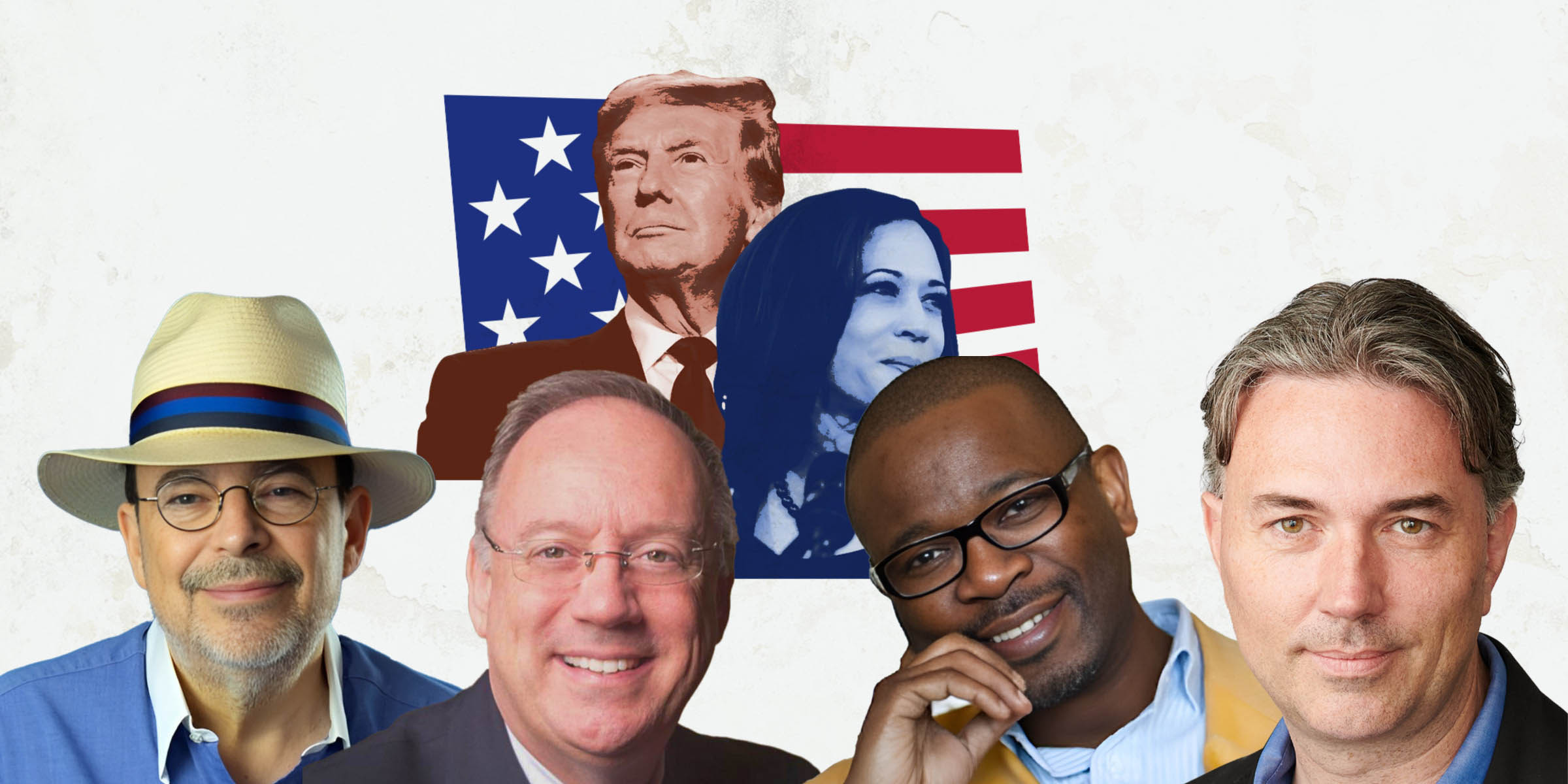The results are in. Former US president Donald Trump has claimed victory after a resounding electoral victory over incumbent Vice-President Kamala Harris, marking a historic return to the White House.
Trump is only the second US president to serve non-consecutive terms and at 78 years old will be the oldest person and first convicted felon elected to the high office.
Among other undesirable distinctions, he will also be the first twice-impeached president to return to the White House after he comfortably reached the 270 electoral college votes needed to secure the presidency.
In a Daily Maverick live journalism webinar on Wednesday moderated by J Brooks Spector, associate editor at Daily Maverick, experts shared their views on the election.
Spector asked the panel four simple questions:
- What happened?
- Why did it happen the way that it did?
- What does this mean for the US?
- What does it mean for Africa, South Africa and the world at large?
https://www.youtube.com/watch?v=GlZg_jk52mw
David Smith - The Guardian’s Washington, DC, bureau chief - answered first by describing the room in the election watch party in West Palm Beach, Florida, where chatter turned into celebration as the night progressed.
“Opinion polls suggested it was going to be a very tight race and that probably, at the time we’re speaking now, maybe we wouldn’t know the results, but clearly — for the third consecutive time — they underestimated Trump’s support,” he said.
And why did he win?
“Many voters said, for them, the biggest issues were immigration and the economy, and despite Trump’s wayward messaging, his gaffes, his insults, all the distractions, I think many people still regarded him as strongest on those issues.”
Ever since Trump made his way down that escalator in Trump Tower in 2015, he’s “really made immigration his signature issue”, said Smith, citing the evolution of plans to build a southern border wall to the more recent promise of the biggest mass deportation operation in US history.
“People actually like that, despite the liberal criticism, and polls showed actually a majority of Americans favour these deportations,” said Smith. “This is a wake-up call. An alarming reckoning for what American society is and what it wants.”
Xolela Mangcu, a professor of sociology at George Washington University, concurred, calling the re-election of Trump “a modern-day reincarnation of the Southern strategy”. The Southern strategy was a political tactic used by Republicans, especially during the 1960s and 1970s, to gain support from Southern white voters by appealing to their opposition to civil rights advancements and desegregation.
“But now the ogre is, of course, immigration and the border, and the Republicans are pivoting towards the politics of fear. Fear of the immigrant in particular,” he said.
Referring to the president-elect’s history of vulgarity, the professor argued that the result evidenced that “no amount of vulgarity or racism or sexism would dissuade folks”.
Christopher Whann, an associate professor in the Faculty of Social Science and Public Affairs at State University of New York’s Empire State University, was next to share his thoughts, injecting a modicum of nuance for consideration.
“It’s clear America is a closely divided country in a lot of ways. I think it’s important to know that even in states that Trump carried, there are pockets of significant Democratic support.
“The statistical margin of error called this close [and] it was close in terms of the popular vote.”
The “how” of this election result, said Whann, could partly be ascribed to Democratic analysts and strategists treating Latino and African American voters as “largely monolithic voting blocs”. The result showed that Trump’s message resonated with many people in these communities “and that really, really cut into Harris’ support”.
He added that the Rust Belt states — former industrial powerhouses of the 1950s that are now “economically destroyed” were “way more right-wing than most Democrats are comfortable acknowledging… But that lesson hasn’t gotten through to Democratic politicians.”
Africa and the world
What does the result mean for Africa, South Africa and the rest of the world?
Smith said Trump’s election would almost certainly see more effort being applied to ramping up oil and gas exploration and beneficiation, with disastrous implications for global climate action.
“Today is potentially a very dark day for our planet, given Trump’s previous denial that climate change is even happening,” he said. “In terms of Trump’s effects on the world, this is going to be very regressive.”
According to Mangcu, Trump’s election victory offers both a chance and incentive for African countries — South Africa, in particular — to recalibrate diplomatic and economic strategies to navigate the changing landscape of US foreign policy.
Foreign policy would “almost certainly get worse”, he said, adding that “South Africans have to be very strategic. We have done a bad job with our foreign policy … have almost gone out of our way to antagonise the US.
“But the most important thing for South Africa and for Africa in general is: how do we renegotiate this relationship with the United States and not throw out the toys simply because Donald Trump has been elected?” DM





